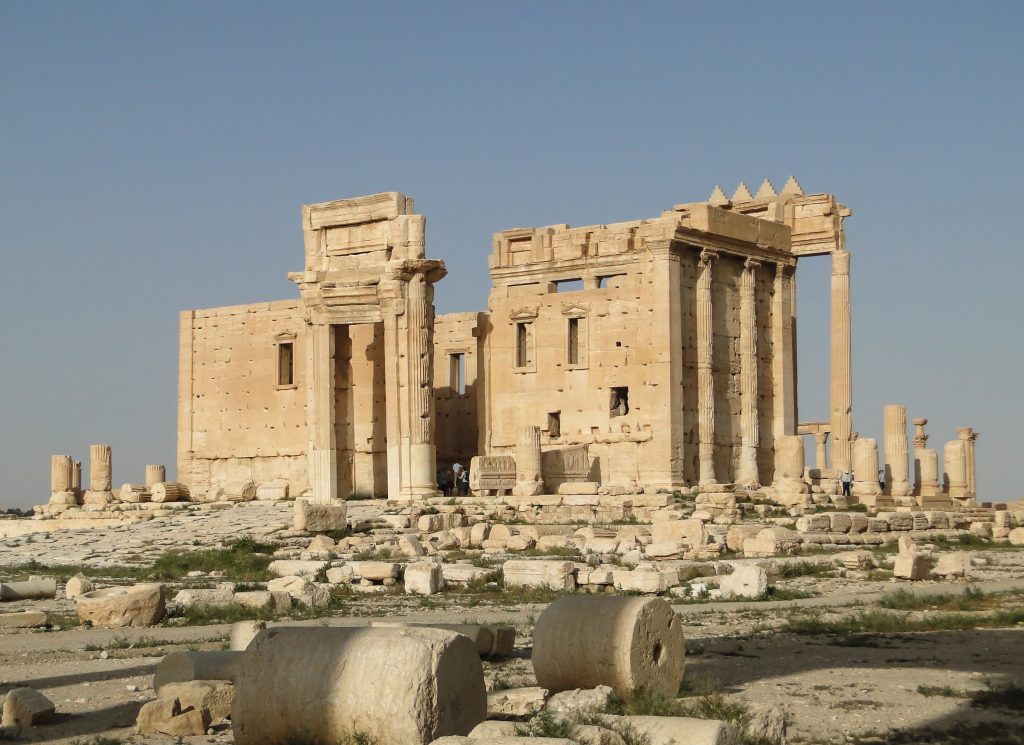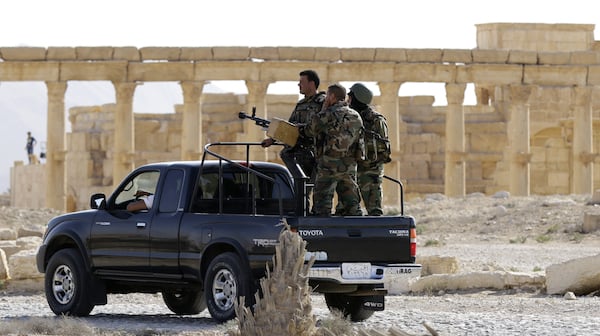Politics
Syrian Forces Retake Ancient City of Palmyra From ISIS
This marks the second time it has been retaken from the Islamic State.

This marks the second time it has been retaken from the Islamic State.

Eileen Kinsella

Palmyra, the ancient Syrian city that was once one of the country’s top tourist attractions, was retaken by the Syrian government on March 2, according to several media reports and the Syrian Arab News Agency (SANA).
“The army and armed forces units, in cooperation with the supporting forces, continued chasing the remnants of the ISIS terrorists to the east of Tadmur (Palmyra) city, inflicting heavy losses upon them,” according to a March 3 story from SANA. Further, army engineering units were working to “dismantle the explosive devices and mines that were planted by ISIS terrorists.”
An earlier SANA report (March 2) said the army sought to “avoid casualties and damage to archaeological sites in Palmyra.”

The Syrian army patrol ancient Palmyra in early May (2016) Photo: LOUAI BESHARA/AFP/Getty Images
This marks the fourth time that Palmyra, which is a UNESCO World Heritage Site, has changed hands between government forces and Islamic State fighters. The Islamic State, which regards the city’s artifacts as sacrilegious symbols, has vandalized historic sites and used its Roman amphitheater to stage public executions.
Islamic state fighters first seized the city nearly two years ago, in May 2015, expelling Iraqi security forces. They themselves were then expelled by Syrian forces a year ago, but later recaptured the city while Syrian and Russian forces were trying to retake Aleppo, as reported by the New York Times.
According to a report in the Telegraph, photographs showed Russian soldiers standing in front of the Roman amphitheater “which was partly damaged and strewn with debris.”
“I prepared for the eventuality that the barbarians had blown the whole thing up,” Maamoun Abdulkarim, Syria’s antiquities chief, told the Telegraph, noting that “there’s some small relief that the citadel and the amphitheater are still standing.”